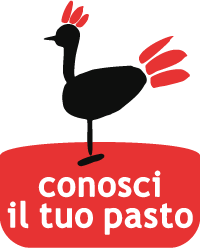Lebanon and Italy, promoting the taste of regional cuisine
7 marzo 2013
 Impossible to get the taste of a country without passing through regional traditions. And it is the same for Italy and Lebanon. From North to South the food becomes a true culinary and life experience only by "travelling" through culture, history, habits, environment, social organization.
As it frequently happens aboard (and not only...), the Italian cuisine is a concentrate of few omnipresent recipes. Spaghetti e mandolino.....
[caption id="attachment_3909" align="alignleft" width="150"]
Impossible to get the taste of a country without passing through regional traditions. And it is the same for Italy and Lebanon. From North to South the food becomes a true culinary and life experience only by "travelling" through culture, history, habits, environment, social organization.
As it frequently happens aboard (and not only...), the Italian cuisine is a concentrate of few omnipresent recipes. Spaghetti e mandolino.....
[caption id="attachment_3909" align="alignleft" width="150"] chef Max Parisi[/caption]
And finally the idea to promote real Italian cooking, valorizing regional recipes, different tastes and food
chef Max Parisi[/caption]
And finally the idea to promote real Italian cooking, valorizing regional recipes, different tastes and food culture with a tasty initiative. Tawlet Souk El Tayeb, Conosci tuo pasto certified restaurant in cooperation with the Italian Cultural Institute in Beirut and chef Maximiliano Parigi from Tuscany , have organized a three days Italian regional cuisine promotion. North, Central and South Italian cooking.
Starting form zuppa pavese, polenta e osei, brasato al Barolo through ribollita, fava negreccia, carciofi alla romana ending with arancini riso, sarde a beccafico and pasta alla norma.
[caption id="attachment_3903" align="alignleft" width="150"]
culture with a tasty initiative. Tawlet Souk El Tayeb, Conosci tuo pasto certified restaurant in cooperation with the Italian Cultural Institute in Beirut and chef Maximiliano Parigi from Tuscany , have organized a three days Italian regional cuisine promotion. North, Central and South Italian cooking.
Starting form zuppa pavese, polenta e osei, brasato al Barolo through ribollita, fava negreccia, carciofi alla romana ending with arancini riso, sarde a beccafico and pasta alla norma.
[caption id="attachment_3903" align="alignleft" width="150"] from left Ambassador Morabito, Prof. Capacci, Andrea Baldi Italian Cultural Insitute[/caption]
The three days event that was opened yesterday by Prof. Alberto Capatti, dean of the Faculty of Gastronomic Sciences in Pollenzo (Cuneo) expert in food history
from left Ambassador Morabito, Prof. Capacci, Andrea Baldi Italian Cultural Insitute[/caption]
The three days event that was opened yesterday by Prof. Alberto Capatti, dean of the Faculty of Gastronomic Sciences in Pollenzo (Cuneo) expert in food history and the Ambassador of Italy Giuseppe Morabito, who deeply believes in the linkage between quality, typical and local productions and restaurants.
And Conosci il tuo pasto is working on to create a "Mediterranean bridge"to Lebanon for quality and organic Italian agricultural productions to valorize a common heritage made by producers and restaurateurs who both believe in true food and in the truth of food.
and the Ambassador of Italy Giuseppe Morabito, who deeply believes in the linkage between quality, typical and local productions and restaurants.
And Conosci il tuo pasto is working on to create a "Mediterranean bridge"to Lebanon for quality and organic Italian agricultural productions to valorize a common heritage made by producers and restaurateurs who both believe in true food and in the truth of food.
 Tawlet Souk El Tayeb is a restaurant with an unique concept. Born form the Lebanon’s farmers market Souk el Tayeb it was conceived to offer every day a different regional Lebanese cuisine prepared directly by the moms and women of the villages.
Tawlet Souk El Tayeb is a restaurant with an unique concept. Born form the Lebanon’s farmers market Souk el Tayeb it was conceived to offer every day a different regional Lebanese cuisine prepared directly by the moms and women of the villages.
